Pesto Sauce
This post may contain affiliate links. Read my full disclosure policy.
Homemade pesto sauce is easy to whip up and delicious on just about everything—from pastas and pizzas to salads and sandwiches.

One of my favorite things about summer cooking is stepping out my back door to pick fresh herbs from my potted herb garden. It always amazes me how the tiny seedlings I plant in May grow into more herbs than I can possibly use up by August. When the basil is overflowing, it’s pesto time! Pesto, or pesto alla Genovese, is a vibrant, garlicky green sauce from Genoa, Italy. While the traditional method uses a mortar and pestle, these days, a food processor makes it a breeze. This versatile sauce is fantastic on everything—from pastas and pizzas to salads, vegetable soup, and sandwiches. What’s even better? It freezes like a dream, so you can enjoy a taste of summer all year long!
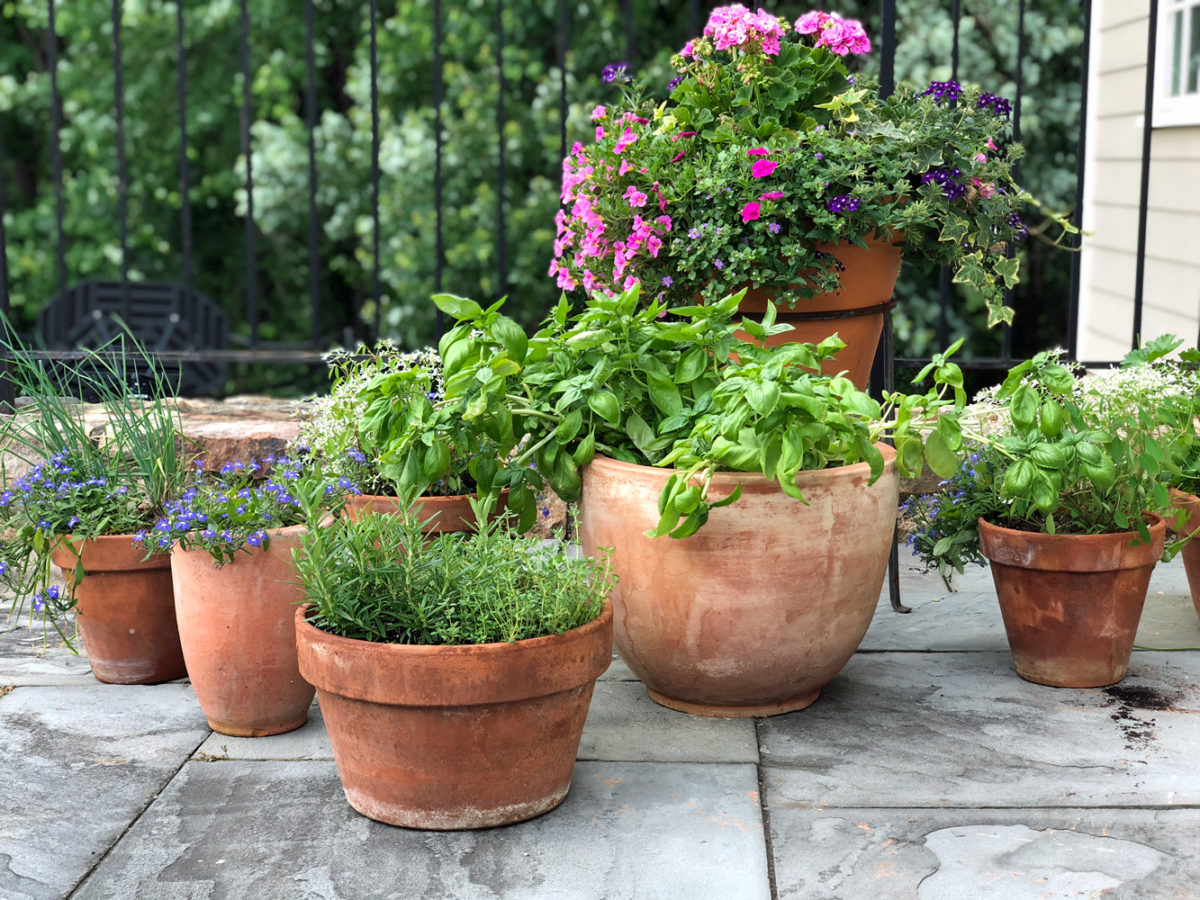
What You’ll Need To Make Pesto Sauce
Traditional pesto is made with garlic, nuts, salt, basil leaves, Parmigiano-Reggiano, and extra-virgin olive oil. It’s important to use top-quality ingredients, as the flavors really shine through.
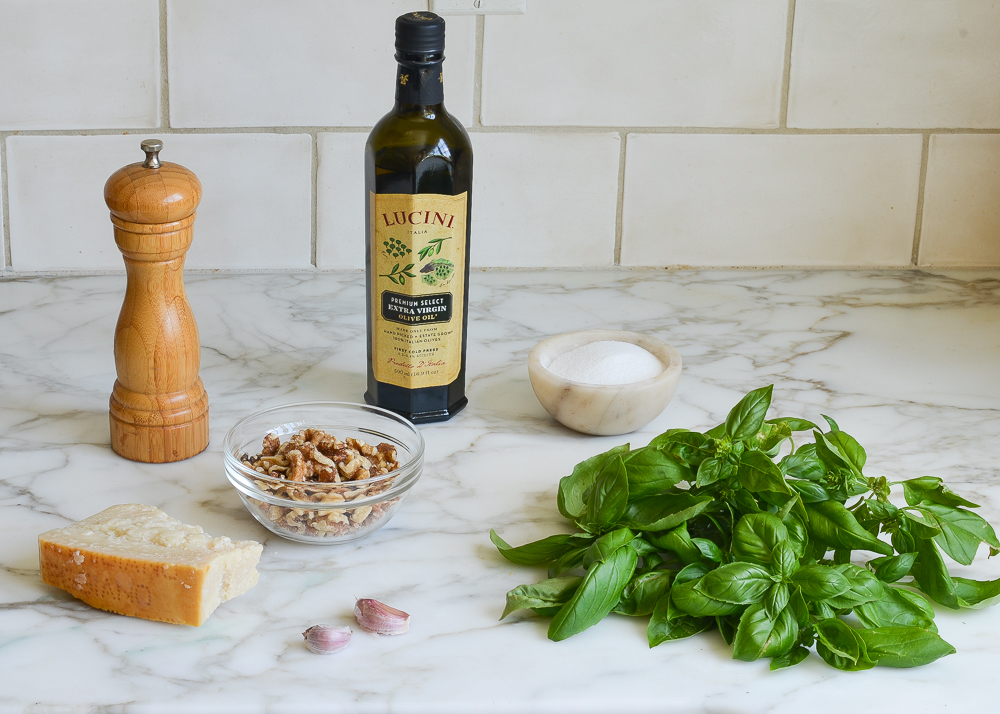
For the cheese, be sure to use authentic Parmigiano-Reggiano from Italy; domestic Parmesan is not the same thing. You can always tell if the cheese is authentic by looking at the rind, which is embossed with the name over and over. If the cheese is already grated, it should be labeled “Parmigiano-Reggiano,” not “Parmesan.”
For the nuts, I use walnuts instead of the more traditional pine nuts for a few reasons. First, I always seem to have walnuts in the house (pine nuts can be very pricey). Second, in recent years an increasing number of people, including me, have fallen prey to a bizarre problem with pine nuts called Pine Mouth Syndrome, a bitter, metallic taste in the mouth that develops a day or two after eating pine nuts. It can last for weeks and make eating or drinking anything very unpleasant. (You can use pecans or almonds, too.)
Step-by-Step Instructions
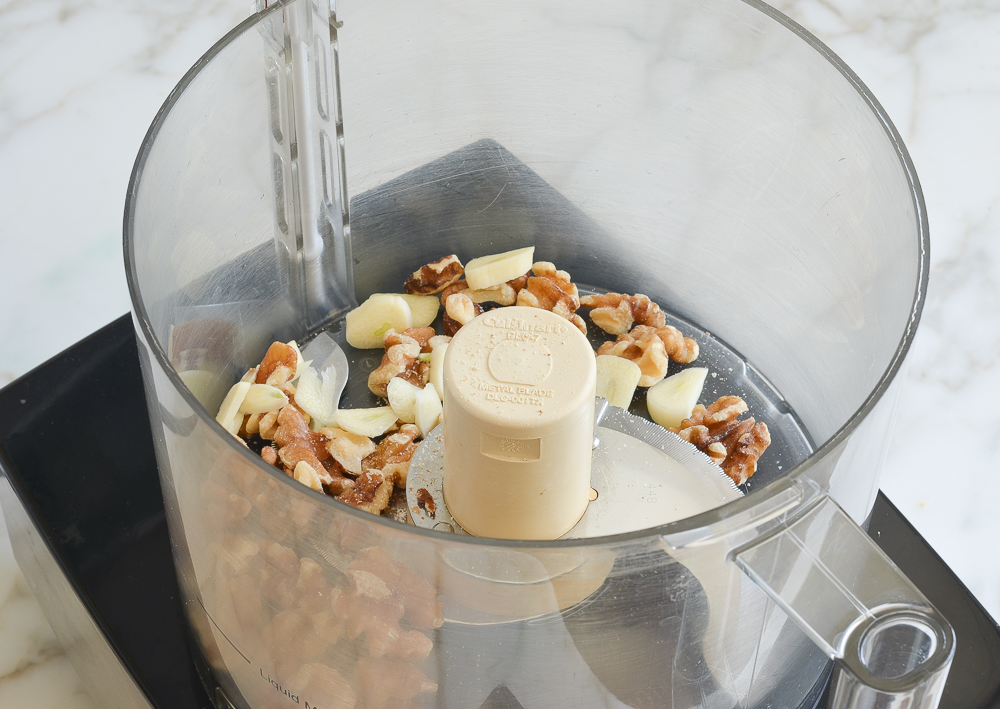
To begin, combine the walnuts and garlic in the bowl of a food processor and pulse until coarsely chopped.
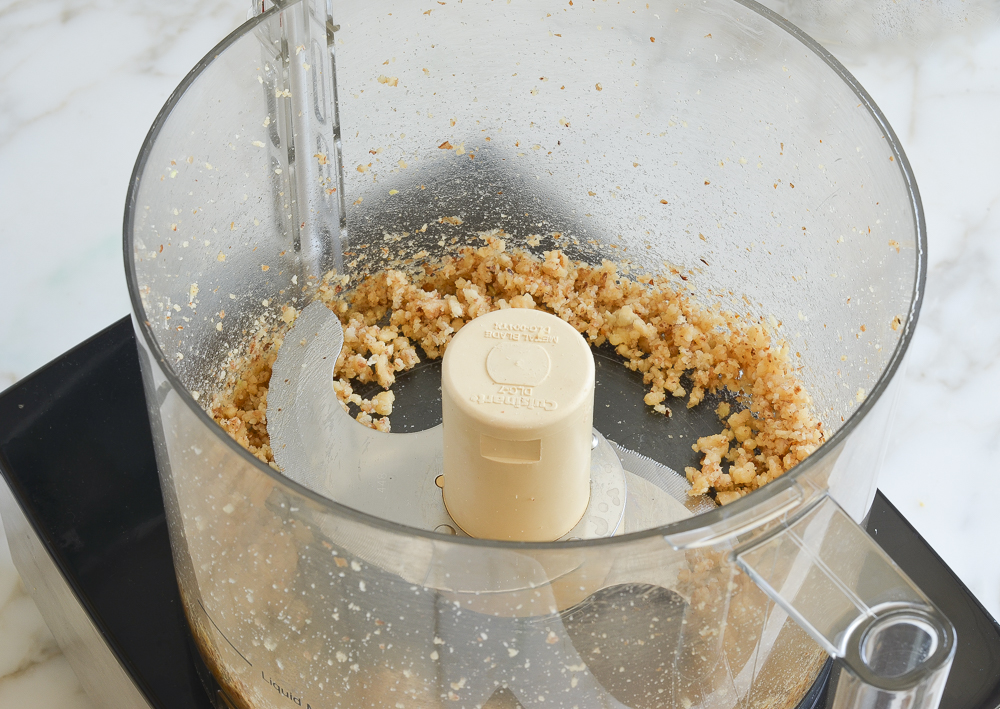
Add the basil leaves, salt, and pepper.
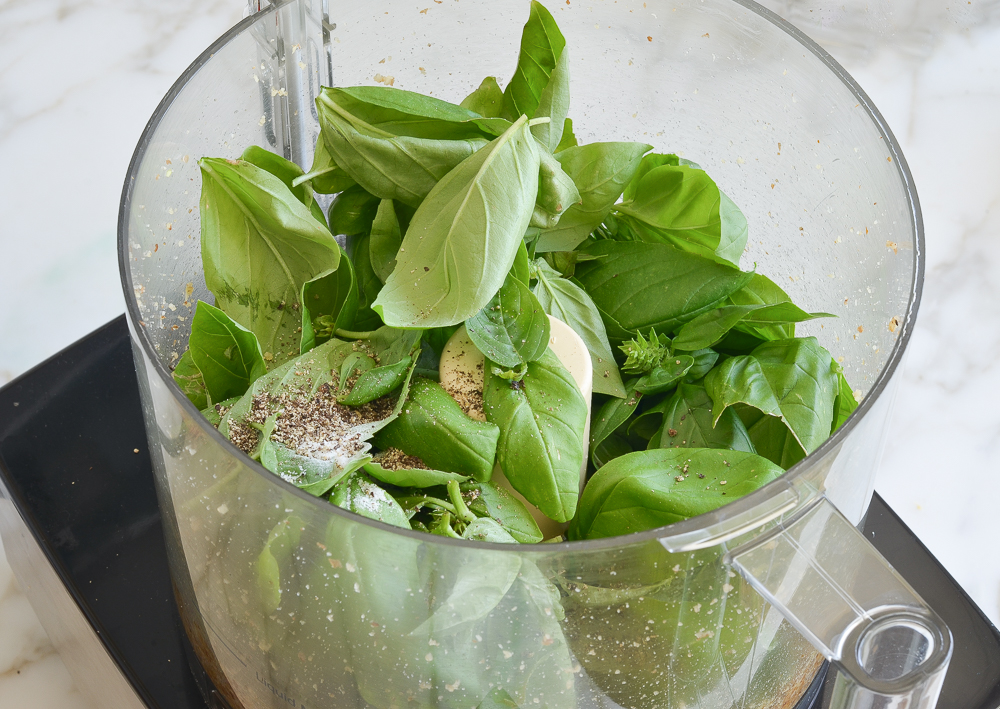
Process until finely chopped.
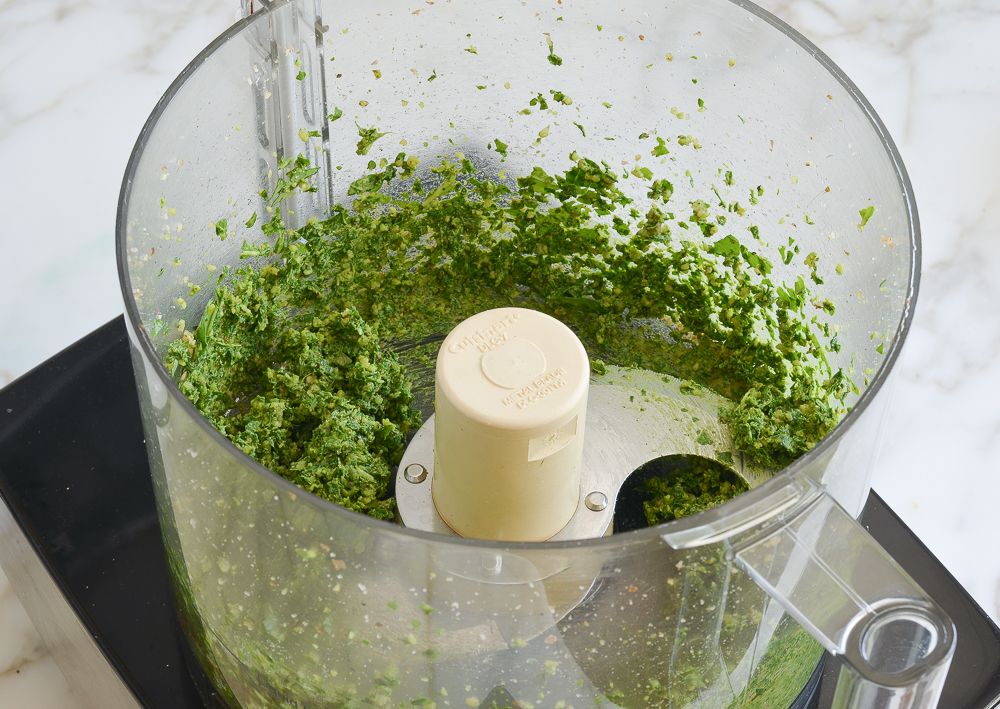
Then, with the food processor running, add the olive oil through the feed tube in a steady stream.
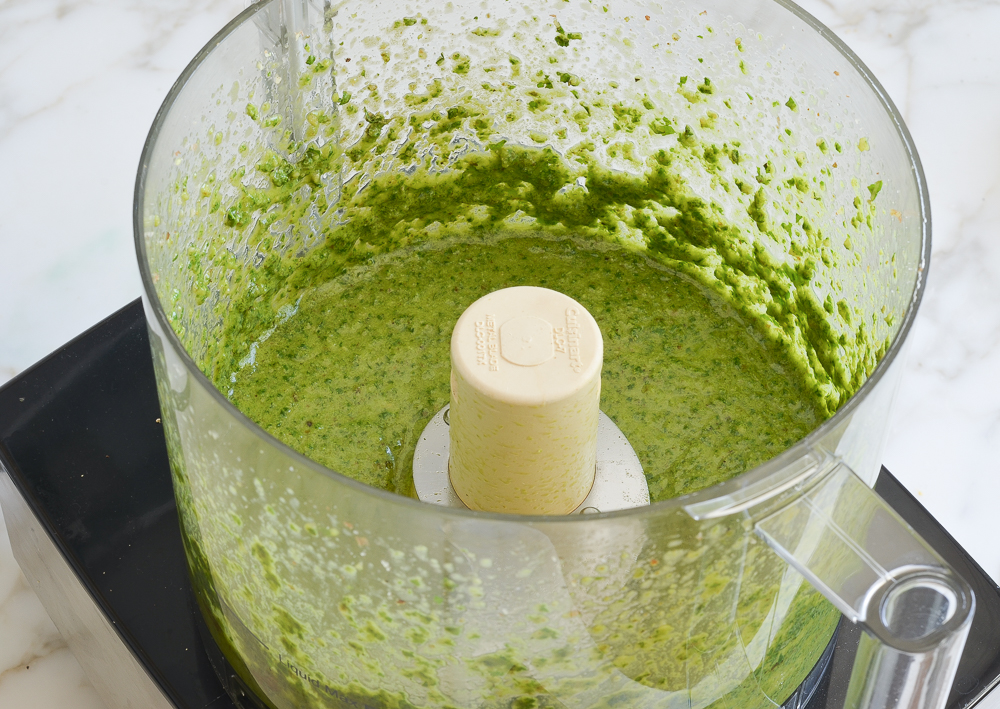
Add the Parmigiano-Reggiano.
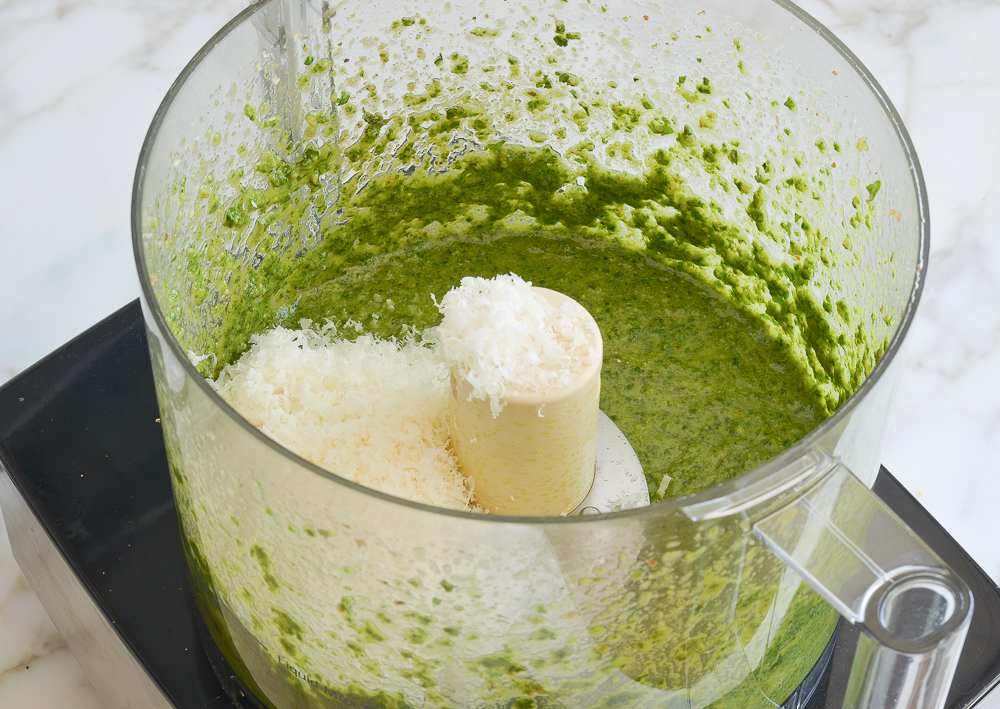
Process again until smooth, and that’s your pesto sauce.
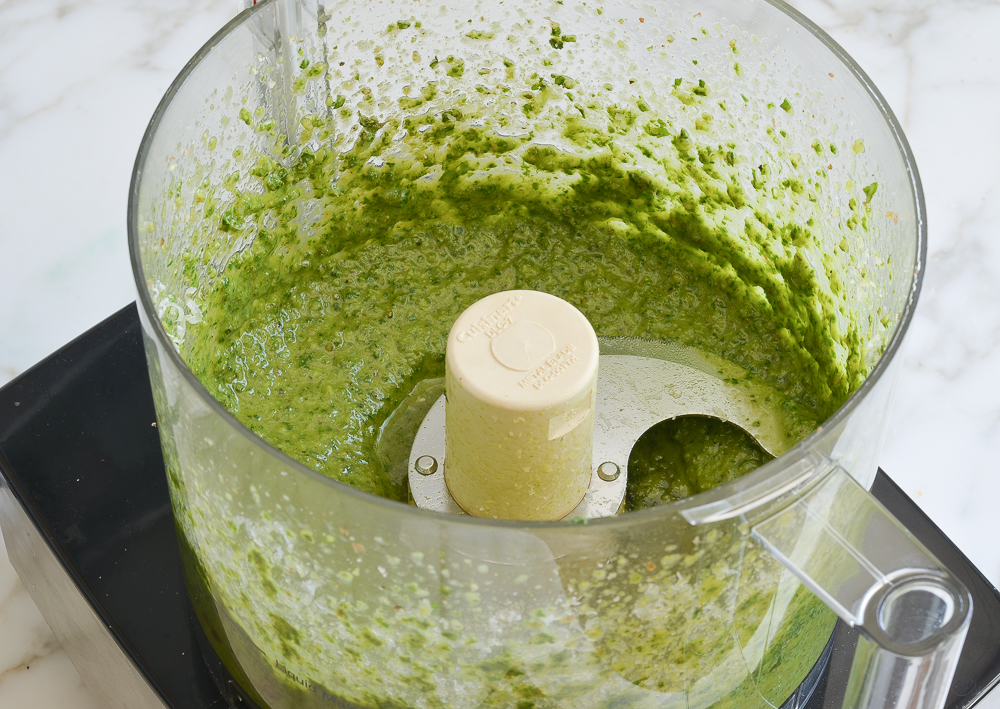
How To Store & Freeze Pesto
Use the pesto immediately or store it in a tightly sealed jar or air-tight plastic container, covered with a thin layer of olive oil (this seals out the air and prevents the sauce from oxidizing, which would turn it an ugly brown color). It will keep in the refrigerator for about a week.
Pesto can also be frozen in an airtight container for up to 6 months. I suggest dividing it into the compartments of an ice cube tray and freezing. Once frozen, remove the cubes from the tray and put in a sealable plastic bag or airtight container. You can add the defrosted cubes to vegetable soup, pasta salad with pesto, zucchini noodles, pesto pizza, eggs, sandwiches, and baked potatoes.

Video Tutorial
You May Also Like
The Best Basic Pesto
Homemade pesto sauce is easy to whip up and delicious on just about everything—from pastas and pizzas to salads and sandwiches.
Ingredients
- ⅓ cup walnuts
- 2 large garlic cloves, roughly chopped
- 2 cups packed fresh basil leaves
- ½ teaspoon salt
- ¼ teaspoon ground black pepper
- ⅔ cup extra virgin olive oil
- ½ cup grated Parmigiano-Reggiano
Instructions
- Place the walnuts and garlic in the bowl of a food processor fitted with a steel blade. Process until coarsely chopped, about 10 seconds. Add the basil leaves, salt, and pepper and process until mixture resembles a paste, about 1 minute. With the processor running, slowly pour the olive oil through the feed tube and process until the pesto is thoroughly blended. Add the Parmesan and process a minute more. Use pesto immediately or store in a tightly sealed jar or air-tight plastic container, covered with a thin layer of olive oil (this seals out the air and prevents the pesto from oxidizing, which would turn it an ugly brown color). It will keep in the refrigerator for about a week.
- Freezer-Friendly Instructions: Pesto can be frozen in an airtight container for up to 6 months. You can also divide your prepared pesto into the compartments of an ice cube tray and freeze. Once it’s frozen, remove the pesto cubes from the tray and put in a sealable plastic bag or airtight container. You can add the defrosted pesto cubes to soups, pasta dishes, eggs, sandwiches, and potatoes.
Nutrition Information
Powered by ![]()
- Serving size: 2 Tbsp.
- Calories: 159
- Fat: 17 g
- Saturated fat: 3 g
- Carbohydrates: 1 g
- Sugar: 0 g
- Fiber: 0 g
- Protein: 3 g
- Sodium: 161 mg
- Cholesterol: 4 mg
This website is written and produced for informational purposes only. I am not a certified nutritionist and the nutritional data on this site has not been evaluated or approved by a nutritionist or the Food and Drug Administration. Nutritional information is offered as a courtesy and should not be construed as a guarantee. The data is calculated through an online nutritional calculator, Edamam.com. Although I do my best to provide accurate nutritional information, these figures should be considered estimates only. Varying factors such as product types or brands purchased, natural fluctuations in fresh produce, and the way ingredients are processed change the effective nutritional information in any given recipe. Furthermore, different online calculators provide different results depending on their own nutrition fact sources and algorithms. To obtain the most accurate nutritional information in a given recipe, you should calculate the nutritional information with the actual ingredients used in your recipe, using your preferred nutrition calculator.
Gluten-Free Adaptable Note
To the best of my knowledge, all of the ingredients used in this recipe are gluten-free or widely available in gluten-free versions. There is hidden gluten in many foods; if you're following a gluten-free diet or cooking for someone with gluten allergies, always read the labels of your ingredients to verify that they are gluten-free.

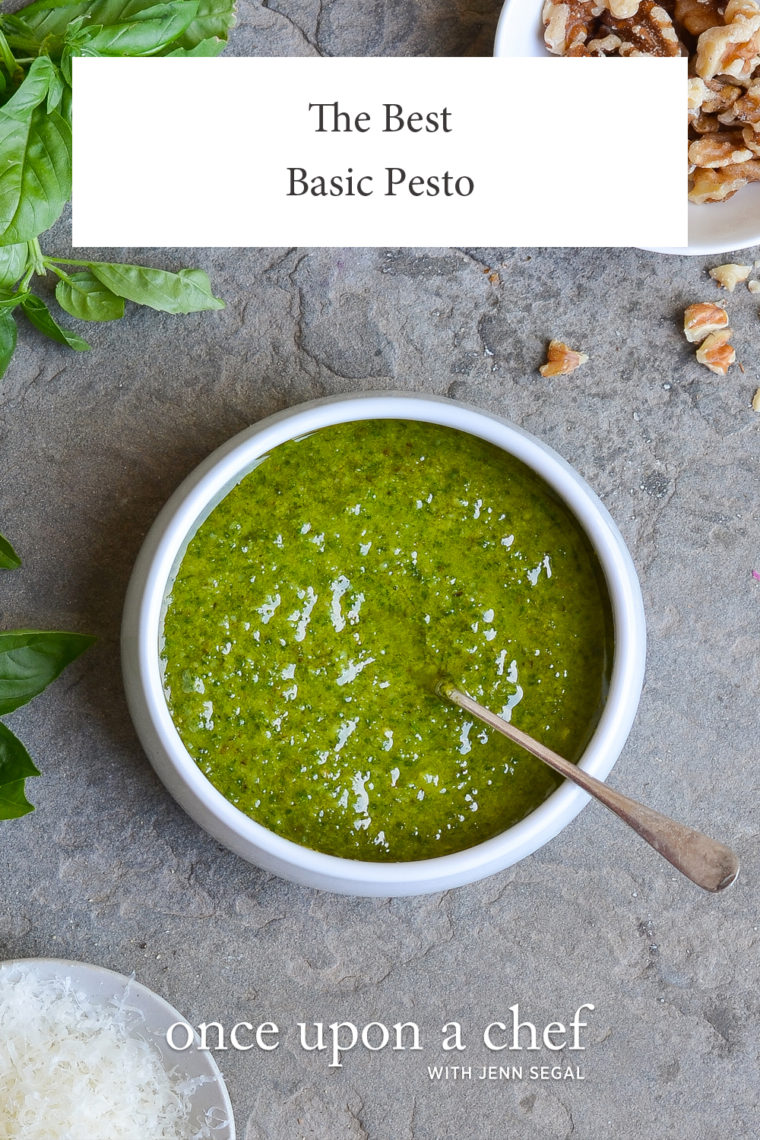
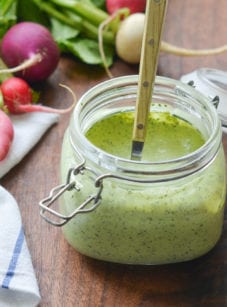
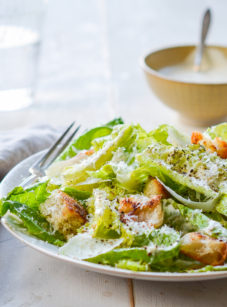

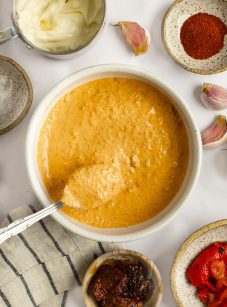
OOPS! I just posted my comment and should have said I reduced the sea salt to 1/2 a teaspoon and it was fine for our taste…not reduced to 1 teaspoon!
Just cleaning up from having made this lovely, bright green, delicious pesto.
I read some of the comments before starting and reduced the salt (sea salt) to 1 teaspoon to start with and found that was plenty. I find American dishes are often saltier than what suits my Canadian palate so am very appreciative of comments from other cooks. It certainly doesn’t hurt to reduce salt but pretty impossible to take it out once it’s been dumped in and processed! LoL
The pesto is awesome with just the right amount of oil and Parmesan…and “yes” you absolutely do need to use Parmigiano Reggiano – it is superior in every way so don’t go cheap.
Thank you again Jenn for another great recipe!
I love this simple recipe and have used it for years now! Enjoying it again this summer with my home-grown basil. Thank you!
I’ve used toasted pine nuts in the past for pesto. Assume that you use the walnuts without toasting as I didn’t see it mentioned? May try toasting them lightly as my walnuts have been in the freezer.
That’s correct — I don’t toast them. 🙂
Saltiest most horrible pesto I’ve ever tasted. Yes I measured it properly. Yuck. What a waste.
I made this with almonds—-absolutely delicious! Taste tested with pita chips—-addictive. Thank you Jenn, another winner 🥇
Jenn – Your recipes are excellent! This is about the 7th or 8th that I have made, and every single one is spot-on! I wanted to say thank you. A family member is allergic to nuts, so I subbed homemade breadcrumbs (from good Italian bread) for the walnuts, and it worked perfectly.
Best, S
❤️
242 reviews – what fun!
For those who truly feel the need to retain as much of the ‘greenness’ as possible in this wonderful recipe, try this chef’s trick: crush one or two fresh vitamin C (ascorbic acid, 250 mg or more) tablets into the recipe before blending. Taste-test to insure you don’t overdo it, but it helps tremendously!
Perfect pesto! I used sea salt, so I used 3/4 teaspoon instead of 1/2 since it is milder and coarser than table salt. The cloves of garlic I used were too big, so it was too garlicky. I added extra parmesan cheese to tone down the garlic, which worked. The recipe does not indicate whether to use dried or fresh parmesan, so I grated some fresh. It was very good. (I think that dried parmesan would give it a lumpy, grainy texture.) I Pinned this recipe for future use!
So far your recipes are batting 100%! and this is no exception. Wonderful and easy! Thanks